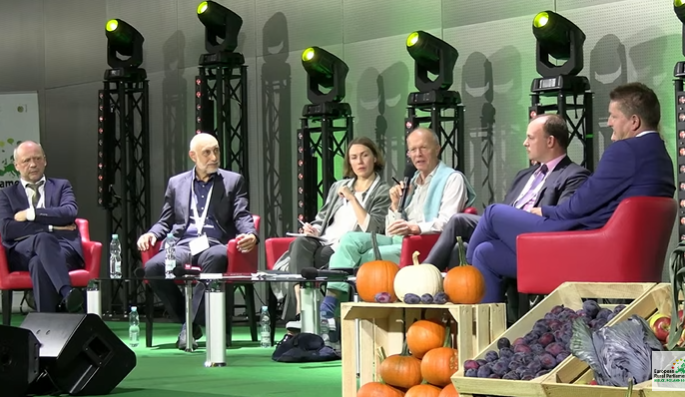At the European Rural Parliament, ongoing in Kielce, Poland, the Future of Europe takes centre stage today. ARC2020 president Hannes Lorenzen hosted a panel on this topic, with Marion Eckardt (ELARD), Katrina Idu (Forum Synergies) Normunds Popens (European Commission), Radim Sršeň European Committee of the Regions, Goran Šoster (PREPARE) and Toma Šutić (European Commission). Here we present Hannes Lorenzen’s thoughts on the topic. These thoughts were circulated among panelists in advance to animate the discussion. There is also a twitter thread on the panel discussion that occurred embedded in the article below.
European genetics
Europe is a strange creature. Its DNA carries the apparent beauty of a very rich cultural and political diversity – and the inherited gene for sleepwalking in simmering conflicts. For five decades Europe was praised around the world for a peaceful post-war integration process. However, European citizens have lost faith in their own project. Today many perceive EU Institutions as distant, bureaucratic and cold. Nationalism is back, and globalisation has lost its glamour. Europe seems to be losing the very substance which keeps its people together. The United Kingdom has left the Union with a “take-what-you-can-get” attitude. Other member states break EU laws. A new abstentionism of citizens weakens democratic legitimacy. And Russia’s attack on Ukraine hits Europe at a moment of political unease and economic vulnerability. It seems only a war could temporarily scuffle EU governments into taking some aligned action.
This is not enough for making the future.
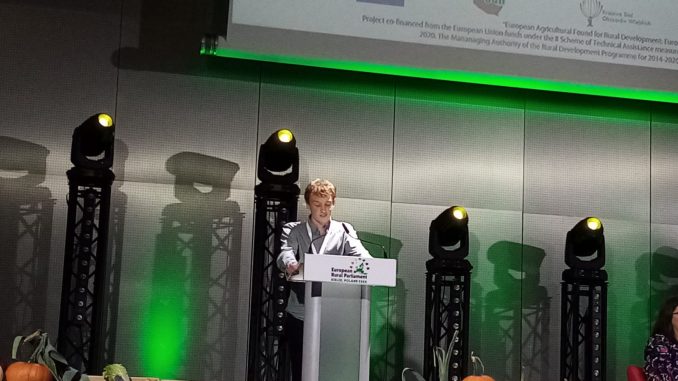
Are European values resilient against global challenges?
Against this civic unease and vulnerability, Europe is holding on to its values. At international fora these are proclaimed, but they are as often challenged by reality. Three of those values are currently under substantial stress: Democracy, Solidarity, and Sustainability.
Democracy
Democracy is a living creature and needs to be nurtured and trained. This training has been neglected for too long. It’s no surprise that representative democracy is losing substance. Many young citizens see no place for participation or renewal. Regenerative forms of democracy have not yet materialised. Citizens see the coming and going of politicians but do not see them making things any better. This leads to autocratic and authoritarian leaders gaining traction. Fear-mongering too often displaces rational discourse, and what is claimed to be “people‘s voice” often degenerates into mere mobbing. However, the good news seems to be that democracy is still alive at the local level. People seem to trust political decision-makers whom they can hold accountable on the spot. But who will regenerate and nurture democracy in Europe?
Solidarity
Solidarity is also proclaimed as a core European value. But it has a difficult stand in a highly individualised and out-competitive social environment. Solidarity was enshrined in the European treaties as a principle, meaning that stronger member states support the weaker ones. This principle has beaconed the status quo as well as the integration of new member states over past decades. Today, solidarity as a civic value is under stress, by growing economic disparities, poverty, social exclusion and forced migration. With national demarcation and xenophobic speech on the rise, solidarity appears to reach its limits. However, we have also witnessed overwhelming solidarity and hands-on support from European citizens to millions of refugees of war. What are governments and European Institutions ready to do to strengthen this welcome culture and everyday solidarity?
Sustainability
Sustainability, it seems, has become the sunny-boy of everyone, as long as everyone is free to define what it means. Yes, it seems that many Europeans wish to live a more sustainable way of life. But this desire often clashes with the doctrine that sustainable economic activity can only be afforded through more economic growth. We know that this is a misconception. Sustainable transformation towards economic and social resilience will need to be reductive, and to make it politically and socially bearable it will have to be distributive. Reducing energy consumption, material turnover, depletion of living resources or transport has so far remained a mere declaration of intent in the EU. Proclaimed strategies like the Green Deal, Farm to Fork and the Biodiversity Strategy so far did not make it into dedicated policies and measures. Europe needs a powerful transformation of its economic system with less stress on people and nature. Will our governments and institutions have the guts to go for it?
(click on the twitter thread below to see aspects of how the debate on the day unfolded)
Are some challenges more important than others?
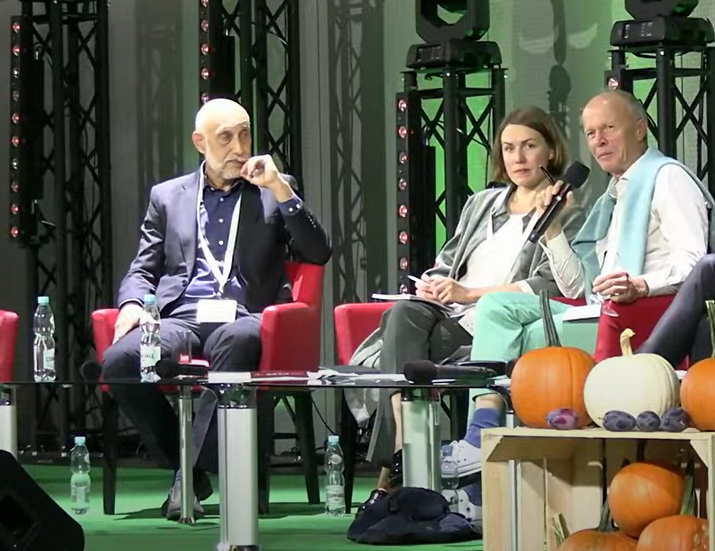
Sure they are. The financial crisis is back, with public debts from the pandemic, the war and galloping inflation. Many citizens will soon be exposed to precarious living conditions, enterprises will close, jobs will be lost. Defense seems to be top priority for governments now, followed by efforts for energy security and economic recovery. However, costs of climate shocks and biodiversity extinction may quickly rise beyond those dimensions. It is an open question whether Europe will be able to stem this with existing policies, finances and decision-making rules. Whether in urban or rural economies, citizens now need to be prepared for a turning point in their lives. As an economic region that is extremely dependent on foreign resources and trade, Europe needs to learn a lesson on sufficiency.
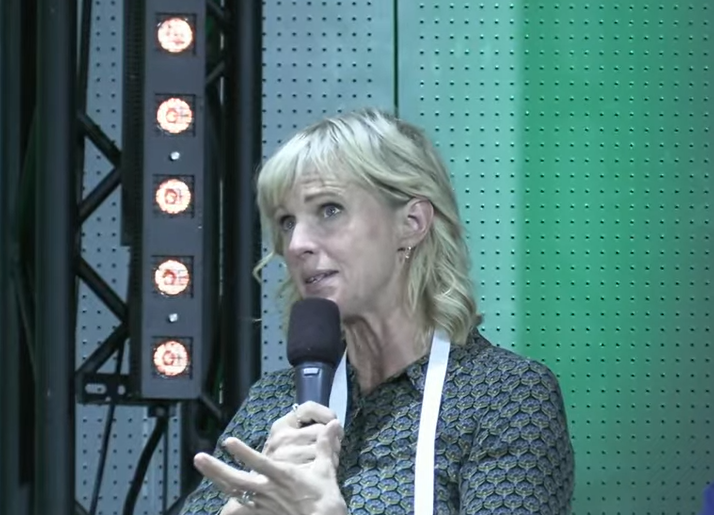
Governments and civic governance
The EU has repeatedly pushed community initiatives in which its civilising values have flashed, for example through the promotion of local development partnerships within the framework of LEADER, Community Led Local Development, Smart villages, ERASMUS, URBAN Community Initiatives, and more. Almost everyone who has been involved in such programmes appreciates the importance of mutual respect, trust-building, awareness of scarce resources and taking responsibility for things as small as they are significant in local life. However, many of these initiatives have been sidelined, co-opted or exhausted by national governments and weakened by ever-increasing bureaucracy at the national or European level. It is time to acknowledge and further boost the competence and creative energy of civil society and of voluntary work to cope with the many crises Europe faces.
Joining Europe – Hopes, promises and disillusions
Following the breakdown of the Soviet Union, many Central and Eastern European Countries were quickly welcome to join NATO – and then the EU, while entire regions like the West Balkans were kept waiting for membership in the Union. Repeatedly Europe has fostered high expectations as well as deep disillusions in neighbour countries. There is a serious risk of producing new frustrations. Western Balkans countries need recognition of their efforts to stabilise peace in the region and substantial help to accelerate EU accession. Taking care of a good and trustful neighborhood is nurturing democracy, solidarity, sustainability – and peace. In the Western Balkans and other neighbour countries, a strong civil society is the seedbed for success.
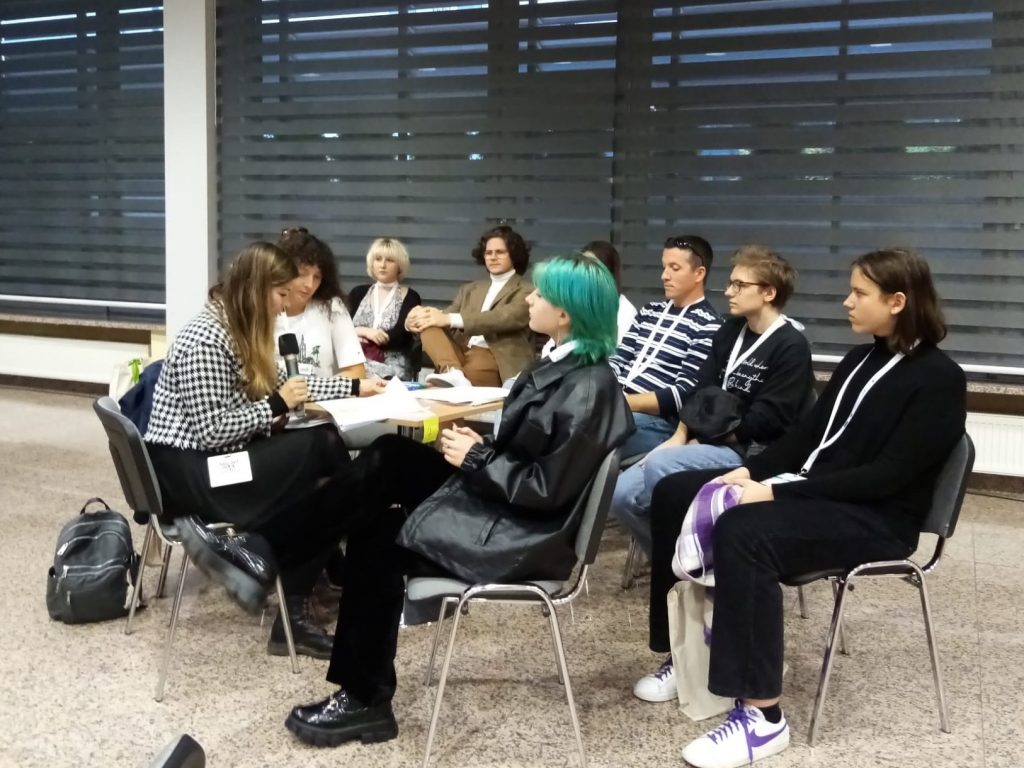
A new “Future of Europe” process in times of war
In times of crises and war, the EU concluded a new Future of Europe process in June this year, based on European citizen consultations. Citizens raised a large number of themes and asked for action on climate change; health; economy, social justice, jobs; digital transformation; migration; education, culture, youth and sport. The EU Commission, Parliament and Council vowed to take these recommendations seriously and to organise a follow-up process in autumn this year. However, in times of day to day crisis management which will dominate political action in coming months and years, it is important not to let people’s suggestions evaporate. European citizens must be enabled on many levels and in practical terms of aid to take responsibility and action. Encouraging words for Europe’s next generation will not be enough. It needs investment into action.
Visioning Rural Europe 2040 and a call for a Rural Pact
Another specific consultation process on a “Vision for Rural Europe” also concluded this year, followed recently by the launch of a “rural pact“. These consultations are useful. However, the window of opportunity for dedicated policy change in areas relevant to rural development had already been closed when policy change could have been made, e.g. for CAP reform, coming into force in 2023. Most of the National CAP Strategic Plans of Member States continue to deal with rural development as an annex to support for agriculture, while a more integrated social, environmental, digital and capacity building framework is still missing. Furthermore, when stakeholders were asked to come forward with “commitments” in a new Rural Pact, a dedicated financial and enabling support structure – beyond networking – was not in place. If consultation processes and decisions on policy reforms continue to pass each other like trains in the night, the risk of frustrating and disengaging stakeholders is very high. Beyond long term visions and suggested pacts: Is there anything more in the pipeline before 2027?
Research and data collection – a circular stocktaking exercise?
Many million euros are being spent each year by the EU on research projects elaborating on rural needs, food systems, environmental protection, climate mitigation and social well-being. What is missing is a framework for experimenting with findings and assisted implementation of these findings in projects. Even if “interphases” between data collection, research and local stakeholders are being tried out, the main results are upgraded data. Research funding usually goes to large consultancy companies, continuously refreshing their database and narratives in a circular stocktaking exercise. Furthermore, competent, experienced and enthusiastic people engaged in rural action are often absorbed into managing stocktaking and networking, strictly bound to the respective services of member states and the European Commission. Could a broader support structure for local actors and projects help to make better use of data and research findings?
Investments into the future of Europe
The European Union is an economically powerful region which allows it to bet on its future and to borrow money for crisis management on the international capital market. The Recovery and resilience fund and related facilities are powerful instruments to support member states in their efforts to stabilise their economies. However, these facilities are again mainly used by member states to return to the pre-pandemic status quo and to reinforce growth without sufficiently stimulating the transition to a more resilient economy for the next generation. The REPowerEU Plan might therefore save enterprises and a system which is not fit for the future, just as the CAP reform as adopted will not prepare farmers, rural entrepreneurs and citizens for the challenges to come. How can Europe finally bet more on system change for a more resilient and inclusive economy?
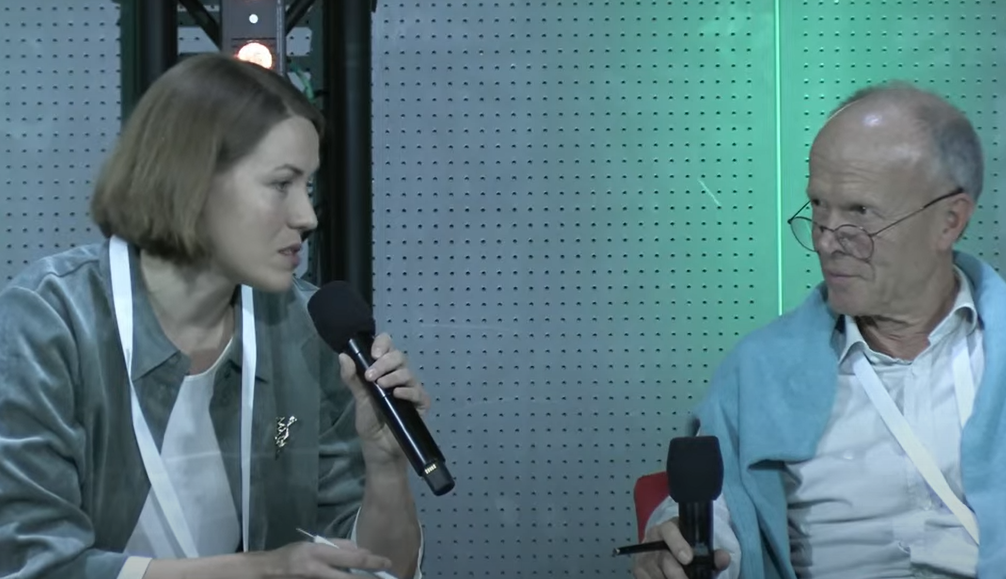
Towards an Integrated European Rural, Agricultural and Food Policy
What is most needed now is to nurture democracy, solidarity and sustainability where people live. In the recently published book “Rural Europe Takes Action – No more business as usual” the editors gathered a broad range of encouraging action for rural resilience already taking place in many parts of Europe. The book also offers the “unwritten Regulation on an Integrated European Rural, Agricultural and Food Policy” as a stimulation for further reflection and debate. Many local communities and municipalities are making integrated policy happen on the spot. Also regional governments take serious action to rise to the challenges they face. National governments and the European Institutions should join the effort. We must get the European project back on track.
The European Rural Parliament runs 12-15th September. More info on ERP2022 here. ”Rural Europe Takes Action – no more business as usual” and all related content can be found here.
More
Rural Europe Takes Action | A Shared Space for Food Transition
Rural Europe Takes Action | CSA and the Building of a Food Commons
Rural Europe Takes Action | Regenerative Governance in Rural Spain
Rural Europe Takes Action | Creating Alternatives, Creating Community

